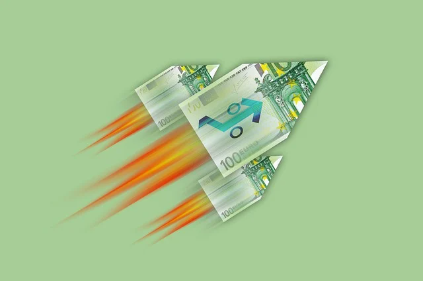현재 장바구니가 비어 있습니다!

[2024-08-05 Korea Economic News] 2025 Minimum Wage Set at 10,030 Won: First Time Exceeding 10,000 Won in 37 Years!
Significant Change in Minimum Wage for 2025
The year 2025 will mark a historical milestone for workers in South Korea as the minimum wage has been officially set at 10,030 won per hour. This announcement, made by the Ministry of Employment and Labor, signifies the first time that the minimum wage has crossed the 10,000 won threshold in 37 years of the system’s implementation. For full-time workers working 209 hours a month, this translates to a monthly salary of approximately 2,096,270 won.
This change is expected to have considerable implications not only for workers but also for businesses and the overall economy of Korea. The increase in minimum wage has been a significant topic of discussion and debate, especially due to the rising cost of living and economic changes following recent global events.
Minimum Wage: Impacts on Workers and Economy
The Ministry of Employment and Labor’s announcement concerning the new minimum wage is crucial for labor market dynamics. The increase to 10,030 won expresses the ongoing commitment to improving labor conditions and boosting the purchasing power of low-income workers. It directly affects many sectors, particularly those reliant on low-wage employment.
As reported by various sources, including Korea Economic News, the wage hike aims to address various economic pressures felt by workers. In the face of inflation and increasing living costs, workers will benefit from this raise as it will enable them to cover basic expenses more comfortably. Furthermore, advocacy groups have long pushed for higher minimum wages, seeing this adjustment as a reflection of labor’s value and contribution to the economy.
Response from the Labor Sector: Perspectives on Wage Hike
Reactions from labor unions and worker advocacy groups have been largely favorable, viewing the increase as a long-overdue adjustment. They believe that the 2025 minimum wage can dramatically influence the standard of living, especially for users of the minimum wage system. Furthermore, as reported in Korea Economic News, this rise is seen as a necessary step toward closing the income gap that has persisted in various sectors.
However, this increment has raised concerns among small businesses that might struggle with higher labor costs. Many employers have expressed fears that the rising minimum wage might lead to layoffs or reduced hiring. The Ministry of Employment and Labor has stated that they are ready to provide support to small businesses affected by this transition, aiming for a balanced approach between improving worker rights and sustaining business viability.
Trends and Future Outlook for Minimum Wage Regulations
The gradual increase in the minimum wage reflects a broader trend observed in many developed economies where the focus is on ensuring fair compensation for labor while addressing fluctuations in market conditions. As discussed in Korea Economic News, this wage policy aims not only to support workers but also to stimulate the economy by enhancing consumer spending.
This increase aligns with the government’s long-term goals to establish a more equitable labor market. Moreover, it is anticipated that future adjustments in the minimum wage will continue to focus on both economic indicators and the standard of living for low-income earners. The Ministry of Employment and Labor will routinely evaluate the impacts of this wage policy to ensure that it meets its intended goals.
Additionally, ongoing negotiations and dialogues between labor unions and employers are essential to address any concerns regarding the sustainability of employment levels amidst rising costs. The interplay of these discussions will play a crucial role in shaping the labor policies in the coming years.
Conclusion: A New Chapter for Workers in South Korea
To conclude, the establishment of a minimum wage of 10,030 won in 2025 marks a vital development for the labor market in South Korea. Workers, especially those earning minimum wage, will see an improvement in their financial stability, allowing for better living conditions.
However, it is crucial to navigate the challenges posed by this increase carefully. Stakeholders, including the Ministry of Employment and Labor, businesses, and labor unions, must work collaboratively to create an environment where both workers’ rights are upheld and the economy remains thriving.
This year’s wage increase comes not just as a policy shift but as a reflection of a broader approach to understanding the relationship between employment, wage levels, and overall economic health. Regular updates from reliable sources, including Korea Economic News, will provide insights into how this adjustment plays out in real-time.
If you are interested in more information on labor issues and economic trends, please visit this link for additional resources.